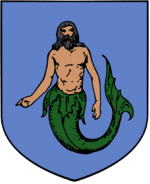Alexander van der Meer

Alexander van der Meer, Viscount van der Meer (born 1701 AN in Batavia) is a Batavian and Shirerithian politician and nobleman. Minister of Trade (1741– ), Commissioner of the Crypteia in the Imperial Household (1739–1741). Raised to the imperial peerage as Viscount van der Meer in 1741 by Kaiser Ayreon V. Married to Carolien (née Rijnhart) with whom he has a daughter, Rebecca
A man of pragmatic intellect and financial acumen, van der Meer’s early years remained somewhat obscure, but it is widely believed that he received a classical education in economics and statecraft at the Koninklijke Julius Civilis University in 's Koningenwaarde, likely influenced by the conservative yet pragmatic ideals of the Conservatieve Monarchistische Partij (CMP), to which he would later pledge his political allegiance.
Van der Meer Nota
Recognizing that a robust economy required more than monetary stabilization, he championed a policy of aggressive infrastructure investment, financed primarily through domestic loans. Roads, canals, and public utilities were reconstructed and expanded, providing much-needed employment and stimulating local economies. Cities ravaged by war saw extensive rebuilding efforts, leading to the revitalization of commerce and industry.
To alleviate the huge deficit and reduce government expenses in restoring Shirekeep to its former glory, van der Meer implemented a land sale policy in the destroyed areas of Lichkeep (Southern Shirekeep). He sold plots of land to nobles eager to establish a presence in the Imperial capital, a strategic move that leveraged the city’s growing significance as a political and economic center. Since the end of the war, Shirekeep had become the undisputed seat of political power, a continuation of policies dating back to post-Mango Anarchy times and further reinforced under Kaiseress Salome. Any noble who wished to exert influence over the government needed to be present in the capital for at least part of the year to engage in the affairs of the Landsraad or Adelsraad. Even the Xinshi Heavenly Light acquired a prime piece of land near Salome Garden (even if only to be able to keep an eye on her nephew, who She trusted less and less to follow Cedrist-Tianchaodao dogma), a rare area spared from the nuclear devastation of 1733 AN, for a staggering 720 million Erb. This initiative proved highly successful in raising funds for the reconstruction of the city, ensuring that the capital’s infrastructure and living conditions were significantly improved without further deepening the national debt.